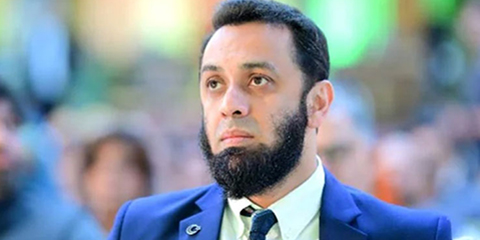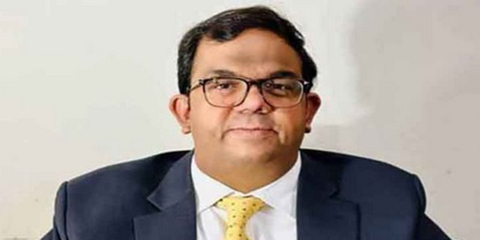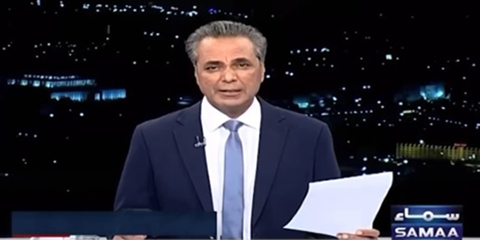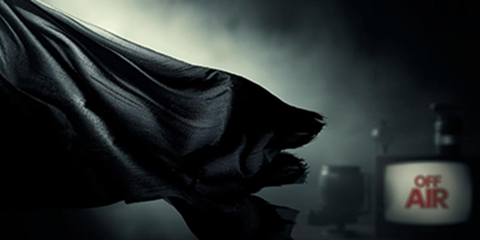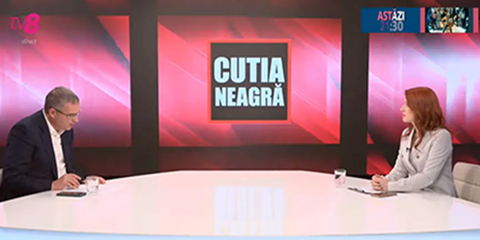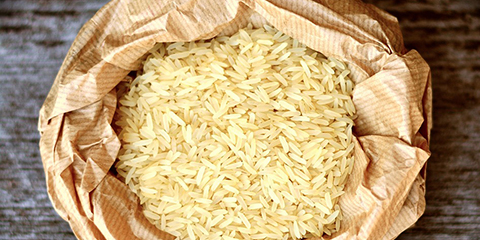Human Rights Watch: Lift travel ban on Cyril Almeida immediately
JournalismPakistan.com |
Published 9 years ago
Join our WhatsApp channel
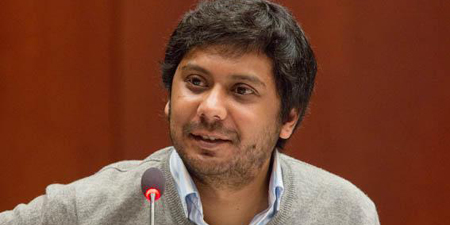
NEW YORK – Pakistan’s government should immediately drop the travel ban on a leading journalist and respect a free and open working environment for the media, Human Rights Watch said Thursday.
On October 10, 2016, the government indicated to his employer and other sources that Cyril Almeida, a journalist with the major daily newspaper Dawn, had been placed on an Exit-Control List (ECL), barring him from traveling outside the country. The travel ban was in response to an October 6 news story by Almeida regarding tensions between the civilian government and military authorities, which Prime Minister Nawaz Sharif’s office said was misleading and violated national security.
"Attempts to intimidate and threaten journalists is a misguided, unlawful response to whatever disagreements the Prime Minister’s Office had with the news report," said Brad Adams, Asia director at Human Rights Watch. "The government should lift the travel ban on Cyril Almeida immediately."
Almedia wrote a detailed account, based on interviews with unidentified sources, of disagreements between the military and civilian authorities during an October 3 meeting. The article said that civilian authorities complained about Pakistan’s increasing international isolation due to the refusal of military intelligence agencies to act against some militant groups.
After the article was published, the Prime Minister’s Office held a meeting between the top civilian and military leadership, then issued a statement on October 10 stating that the "prime minister took serious notice of the violation and directed that those responsible should be identified for stern action."
Dawn responded by stating that the story was "verified, cross-checked and fact-checked." A Dawn editorial further said that, "The government should at once remove Mr. Almeida’s name from the ECL and salvage some of its dignity."
Pakistani journalists have long faced serious obstacles to their work from the government, security forces, political parties, and militant groups. Journalists have experienced harassment, intimidation, assault, death threats, kidnapping, torture, murder, and arbitrary arrest and detention.
Pakistan remains one of the most dangerous countries in the world for journalists. More than 35 journalists and media workers have been killed in Pakistan since 2010 because of their work. The Committee to Protect Journalists’ Global Impunity Index placed Pakistan ninth on the list of countries where journalists are murdered without the attackers being prosecuted.
The government should rescind policies that shield it from criticism and instead ensure that space for public debate and free speech is protected both from extremist groups and the authorities, Human Rights Watch said.
Any limitations on the right to freedom of expression must adhere to international human rights law, such as the International Covenant on Civil and Political Rights, to which Pakistan is a party. The United Nations Human Rights Committee, the expert body that monitors compliance with the covenant, has said that any restrictions on fundamental freedoms must be prescribed by law, necessary in a democratic society, and proportionate to a legitimate aim. The committee’s general comment no. 34 on freedom of expression states that when using national security as a justification for limiting free expression, the government "must demonstrate in specific and individualized fashion the precise nature of the threat and the necessity of the specific action taken." The government’s censoring of critical voices falls considerably short of these standards, Human Rights Watch said.
"The Pakistani government, by clamping down on free expression, is creating an environment that makes journalists even more vulnerable," Adams said. "Using unstated national security concerns as a pretext for censorship is a worrying reminder of days of dictatorship in Pakistan." - Human Rights Watch
Related posts:
Almeida ban unlikely to go until completion of inquiry: reports
Drop travel ban on Dawn journalist: Amnesty International
Dawn defends its writer, calls for immediate removal of his name from ECL
Cyril Almeida expects further, uglier actions
APNS wants Dawn journalist's name off ECL immediately
PFUJ concerned about Almeida's safety and security
HRCP demands lifting of travel ban on journalist
Senior journalists take to Twitter to back Cyril Almeida
Dawn journalist Cyril Almeida put on Exit Control List
Daily Times bats for Dawn
Read Next
Why only Nukta, Mr. Minister? Media workers question government's selective support
November 06, 2025:
Information Minister Attaullah Tarar’s job offer to Nukta staff draws criticism as hundreds of journalists across Pakistan face layoffs, salary delays, and job insecurity.
Information Minister Tarar announces jobs for all 37 laid-off Nukta employees
November 06, 2025:
Information Minister Attaullah Tarar announces jobs for 37 laid-off Nukta employees, saying they will be placed at digital platforms within 48 hours amid growing media uncertainty.
Faisal Chaudhry’s viral one-liner on G for Gharidah steals the show
November 05, 2025:
PTI’s Faisal Chaudhry’s witty reply to Gharidah Farooqi on GTV’s “G for Gharidah” goes viral as a clip from their debate over the 27th Amendment sparks reactions online.
A digital dream falters: Nukta cuts 37 jobs in Pakistan after only one year
November 05, 2025:
Digital platform Nukta lays off 37 employees in Pakistan, including journalists and producers, highlighting the financial struggles facing new media ventures in a shrinking job market.
Talat Hussain says offensive viral clip was edited out, not aired on Samaa TV
November 04, 2025:
Talat Hussain denies airing the viral clip showing Sher Afzal Marwat’s vulgar remark, saying it was not part of his Samaa TV show.
PFUJ recalls November 3, 2007 emergency as Pakistan’s darkest day
November 03, 2025:
PFUJ recalls November 3, 2007, as Pakistan’s darkest day under Musharraf, urging protection for journalists and the abolition of laws threatening press freedom.
PFUJ calls for end to Impunity for Crimes Against Journalists
November 02, 2025:
PFUJ urges Pakistan’s federal and provincial governments to end Impunity for Crimes Against Journalists and ensure their safety and press freedom.
Global impunity for journalist murders worsens as Pakistan sees 60 percent rise in attacks
November 02, 2025:
Impunity for crimes against journalists deepens worldwide as Pakistan reports a 60 percent surge in attacks and weak enforcement of safety laws.





